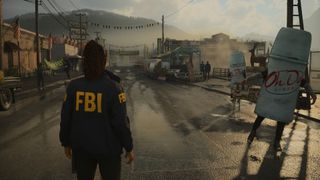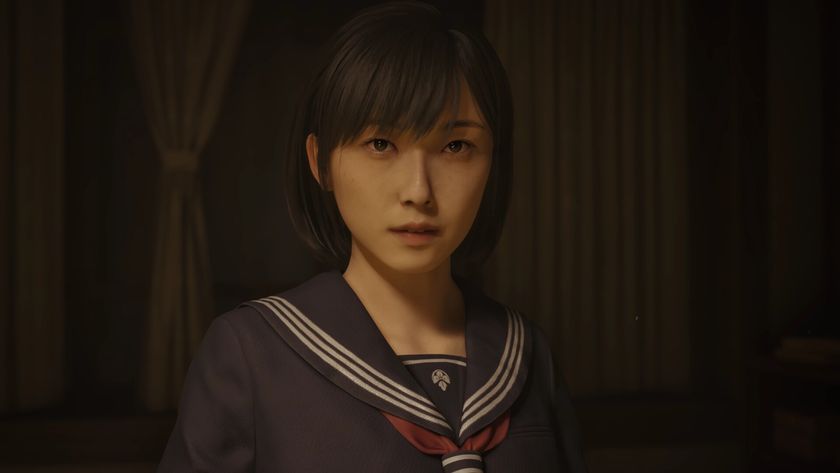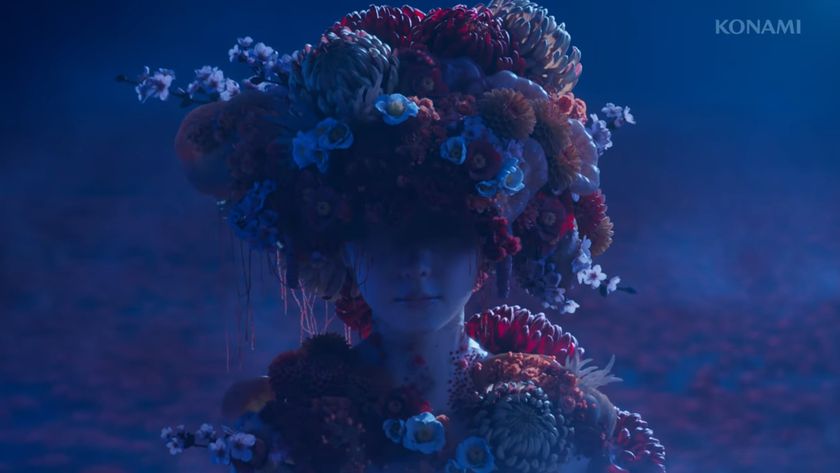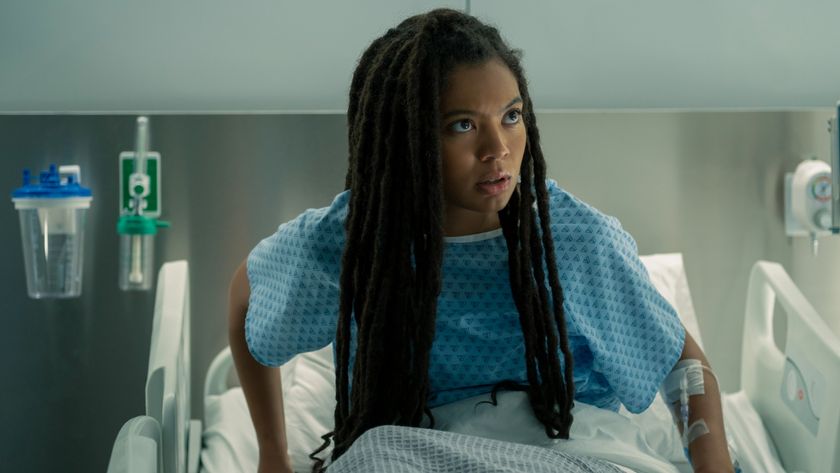Alan Wake 2's shifting realities and case boards demonstrate how to do dual protagonists right
Opinion | I'm completely obsessed with Alan Wake 2's most novel and creative feature
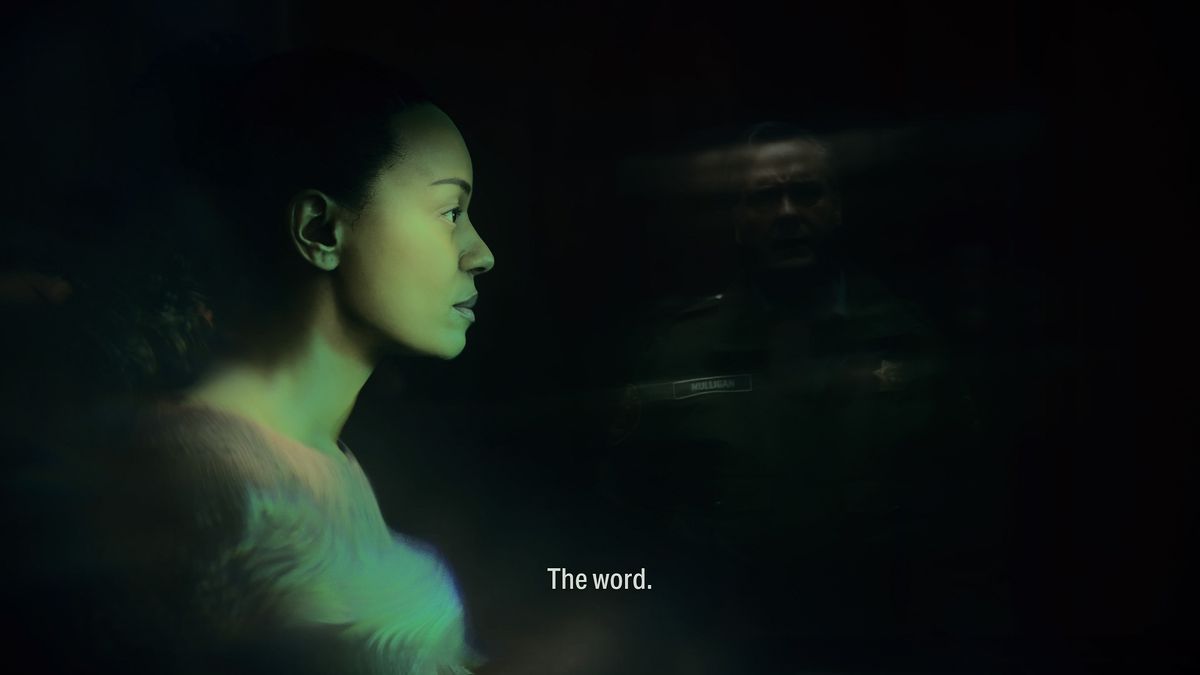
I've just found some evidence in Alan Wake 2, and I couldn't be more excited about it. Nothing makes me feel like a bonafide detective quite like the Mind Place in Remedy's survival horror, and it's by far my favorite feature in the game. Sure, sometimes it may hold your hand a little and get in the way of discovering the next step to take organically, but I love how it chronicles the events of the story.
In a way, it's like the most creative and thematically appropriate quest log that continually makes me feel like I'm actively propelling the story forward with every new discovery. Not only that, but it also factors into one of the most well-executed aspects of Alan Wake 2: switching between characters. With dual protagonists, both Saga and Wake have their own respective boards that work in different ways to complement their perspectives. Instead of a case board, Wake has a plot board, which fits perfectly given that his version of the Mind Place takes the form of Writer's Room. From the way the case files roundup collectibles, clues, and narrative threads, to the smaller details that start to bleed in to reflect Saga's experiences, I can't stop obsessing over the Mind Place and Wake's equivalent.
Personal touches
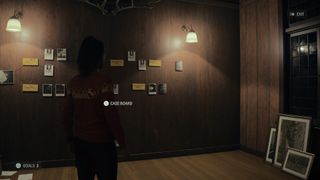
The more time I spend delving into the mystery surrounding Saga and Wake, the more I've come to appreciate the Alan Wake 2 case board. Each time a new piece of evidence is added to a case file, you're not just unraveling more about the strange occurrences you're getting swept up in, you're also learning more about Saga and her connection to the events as they unfold. I love how, for example, you can hover over clues pinned to the board and see notes penned by Saga that give you insight into her thoughts on a particular piece of evidence or story thread. Since the Mind Place, as the name gives away, is located within Saga's mind, it makes sense that it brings you closer to her as a character. It's a space for her innermost thoughts and deductions to play out, giving you a better understanding of how she feels every step of the way.
And that's the crucial point. The Mind Place acts as a vehicle not only to keep pushing the story forward, but also as a means to really immerse you in the events that unfold from Saga's perspective. After all, this is a location that is personal and unique to her, and as you begin to learn more about her as a character, more details start to appear in the Mind Place - such as a photograph of her daughter. As an FBI agent, it also makes perfect sense for her thought process to reflect the job she has in the world, and it certainly makes me feel like I'm directly in her shoes, role-playing as a detective trying to make sense of clues.
As well as gathering together all of the evidence, the case board also files all of the collectibles you've found along the way, and the location lets you rewatch or listen back to songs and commercials. From a practical standpoint, I really appreciate the way I can look over everything that's transpired so far, with every notable character, event, and discovery laid out on a board for me to reflect on. Plus, with collectibles to find - from Cult Stashes to Nursery Rhymes and lunchboxes - it's also useful for keeping track of what I've found in each location I've been to, and even gives me a vague idea about how many I have left to discover.
Switch realities
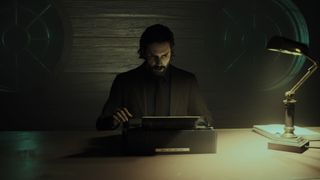
On the flipside, when you switch over to Alan Wake, you retreat into the Writer's Room as opposed to The Mind Place. There, you also make use of a board that fits perfectly with who he is as a character. Instead of being a case board, Wake uses a plot board and each location acts as if it's a scene in one of his novels. When you're exploring the Dark Place, you can come across plot points that can be placed down on the board for Wake to write into reality. Essentially, he's able to manipulate and change areas in the in-game world through the Writer's Room. While it doesn't feel nearly as satisfying to use as the Mind Place's case files, I do appreciate how it works differently to reflect Wake's profession just like Saga.
There are some downsides to the board set up, though. There have been some occasions, for example, where I've gotten ahead of the evidence and worked it out for myself, but the Mind Place stops me from progressing until I've pinned it all down. Sometimes Saga will even acknowledge that we've already worked something out, and the evidence will automatically go in the correct spot on the board. When you're constantly finding clues, it can slow down the pacing of the experience at times.
Sign up to the 12DOVE Newsletter
Weekly digests, tales from the communities you love, and more
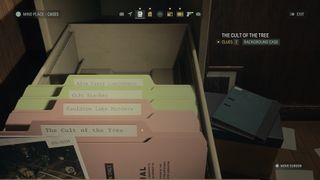
As you try to find the way forward, Saga can also point you towards the board, or suggest you should profile a character in the Mind Place, which takes some of the joy of reaching that conclusion yourself away. While it steers you a little bit more than it really needs to, it's incredibly satisfying to compile all of the clues in one place, and as features go, its positives far outweigh any negatives.
The way each board has a different use mechanically differentiates the experience of playing as either character, and I love how effectively both areas match up with Wake and Saga thematically. Both The Mind Place and Writer's Room feel like they're tailored to the role you're playing as you switch between realities. With Alan trying to rewrite the story and Saga trying to make sense of it, the boards also help to distinguish the goals of each character and give either side its own distinct feel. It's both a creative and apt way of progressing, and an effective means of making both protagonists feel like they're leading their own story - even if they are intrinsically linked.
Through all of this, I never tire of the way it makes me feel like a detective, and it's very rewarding to see everything I've discovered laid out before me. And as ways to keep track of the story and catalog collectibles go, it's a cut above many other games I've played.
I've turned Alan Wake 2 into a detective pen-and-paper RPG and I'm having the time of my life.

I started out writing for the games section of a student-run website as an undergrad, and continued to write about games in my free time during retail and temp jobs for a number of years. Eventually, I earned an MA in magazine journalism at Cardiff University, and soon after got my first official role in the industry as a content editor for Stuff magazine. After writing about all things tech and games-related, I then did a brief stint as a freelancer before I landed my role as a staff writer here at 12DOVE. Now I get to write features, previews, and reviews, and when I'm not doing that, you can usually find me lost in any one of the Dragon Age or Mass Effect games, tucking into another delightful indie, or drinking far too much tea for my own good.
